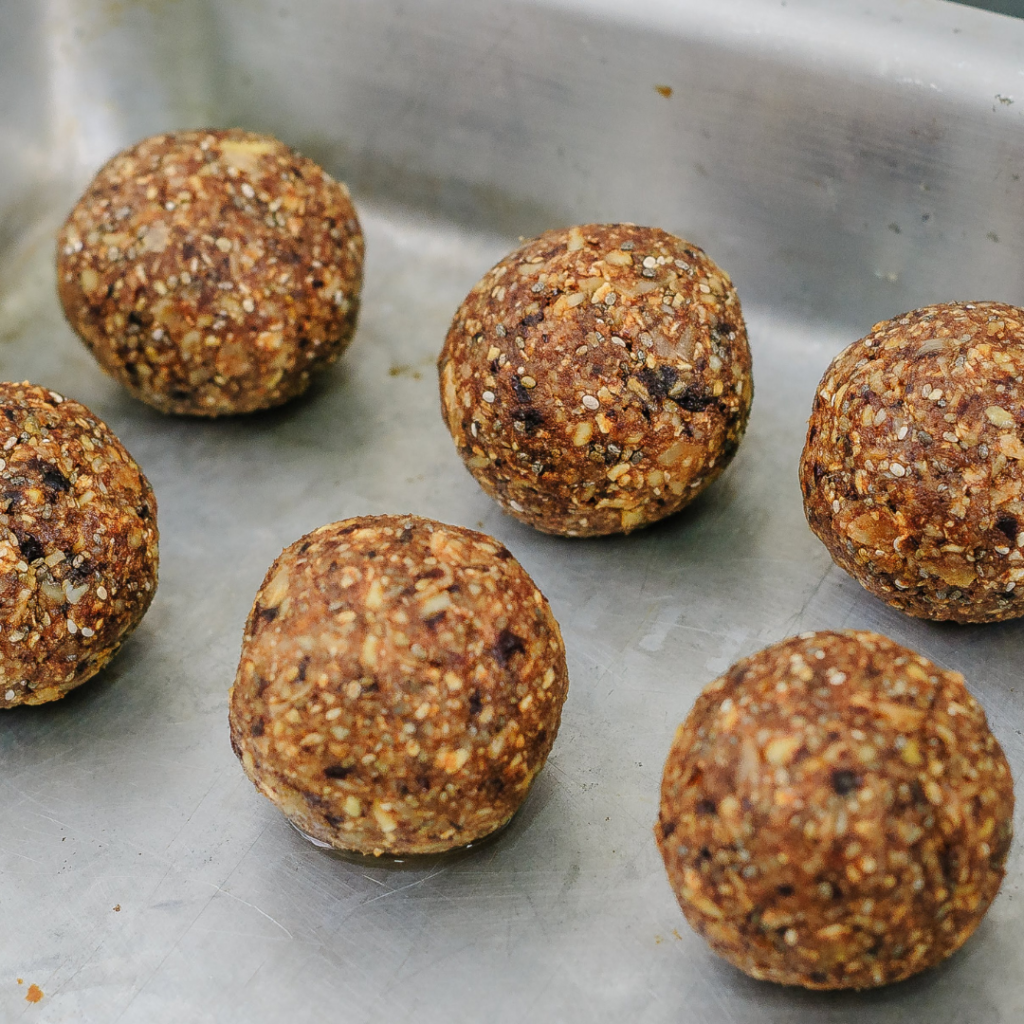Cracking the Egg-nigma: Exploring the Wonders of Eggs
Eggs have long been hailed as a nutritional powerhouse, but are they truly as good for us as we’ve been led to believe? Join us as we delve into the egg-nigma surrounding this versatile food, exploring its benefits, debunking myths, and offering delicious ways to enjoy them.
Mastering the Perfect Boiled Egg
Achieving the perfect boiled egg isn’t as simple as it seems. Here’s a foolproof method to ensure your eggs come out just right, every time:
- Heat the water: Start by bringing a pot of water to a rolling boil.
- Prepare the eggs: Carefully lower cold eggs into the boiling water using a slotted spoon, then reduce the heat to a low simmer.
- Cook to perfection: Let the eggs simmer for 3 minutes for soft-boiled, 6 minutes for medium-boiled, or 12 minutes for hard-boiled.
- Cool and enjoy: Transfer the eggs to an ice bath or run them under cold water to stop the cooking process. Peel and enjoy your perfectly cooked eggs!

The Incredible, Edible Egg: Unpacking the Benefits
Now that we have our perfectly boiled egg lets get one thing straight, eggs are much more than just a breakfast staple — they’re a nutritional powerhouse packed with essential nutrients. Here’s why you should consider adding eggs to your diet:
- High-Quality Protein: Eggs are a complete source of protein, containing all nine essential amino acids needed for muscle repair and growth. With approximately 6 to 7 grams of protein per egg, they provide a significant portion of your daily protein needs.
- Vitamins and Minerals: In addition to protein, eggs are rich in vitamins and minerals essential for overall health. They are particularly high in vitamin D, which is crucial for bone health and immune function. Eggs also contain vitamin B12, selenium, and choline, all of which play important roles in various bodily functions.
- Eye Health: The antioxidants lutein and zeaxanthin found in eggs can help protect against age-related macular degeneration and cataracts. These nutrients are especially important for maintaining healthy vision as we age.
- Brain Health: Choline, a nutrient found in eggs, is crucial for brain development and function, making eggs an excellent choice for expecting mothers. Choline is also involved in the production of neurotransmitters that regulate mood and memory.
By incorporating eggs into your diet, you can reap the numerous health benefits they offer. From supporting muscle growth to promoting brain health and protecting your eyesight, eggs are truly a nutritional powerhouse.

Cracking Myths: The Truth About Eggs and Cholesterol
Despite their nutritional benefits, eggs have been the subject of much debate, particularly regarding their cholesterol content. Here’s the truth behind common myths about eggs:
- Myth #1: Eggs Can Significantly Raise Blood Cholesterol Levels: Research shows that dietary cholesterol in eggs has minimal impact on blood cholesterol levels for most people. While eggs do contain cholesterol, they also contain other nutrients that may actually help improve cholesterol levels, such as unsaturated fats and antioxidants.
- Myth #2: Eating Eggs Increases Your Risk of Heart Disease: Numerous studies have debunked this myth, with evidence suggesting that eggs may actually offer heart-protective benefits. For example, the antioxidants found in eggs may help reduce inflammation and improve blood vessel function, lowering the risk of heart disease.
- Myth #3: All the Nutrition is in the Egg White: While egg whites are a good source of protein, the yolk contains the majority of vitamins, minerals, and antioxidants found in eggs. In fact, the yolk is where you’ll find nutrients like vitamin D, vitamin B12, and choline, which are essential for overall health.
- Myth #4: Eggs Should Be Avoided as Part of a Healthy Diet: On the contrary, eggs can be part of a balanced diet when consumed in moderation. Research has shown that eating eggs regularly is not associated with an increased risk of heart disease or other health problems. Plus, eggs are a convenient and affordable source of high-quality protein and other essential nutrients.
By understanding the real science behind eggs and their effects on health, we can make informed choices about including them in our diets without undue worry. Now, let’s move on to discussing the importance of buying free-range eggs and other alternatives for those who cannot eat eggs.
Quality Matters: Investing in Free-Range Eggs
As egg prices continue to rise, it’s essential to consider the quality of the eggs we purchase. Opting for free-range eggs not only supports animal welfare but also offers nutritional benefits:
- Nutritional Superiority: Free-range eggs tend to have higher levels of omega-3 fatty acids, vitamins, and antioxidants compared to conventional eggs. This is due to the natural diet and lifestyle of free-range hens, which includes foraging for insects and plants outdoors. As a result, their eggs are richer in nutrients and have a more vibrant flavor.
- Ethical Considerations: Beyond the nutritional aspect, choosing free-range eggs also aligns with ethical values for many consumers. Supporting farms that prioritize animal welfare sends a powerful message to the food industry, encouraging more sustainable and humane practices. Free-range hens are given access to outdoor spaces where they can roam freely, exhibit natural behaviors, and enjoy a higher quality of life compared to hens confined to cages in conventional egg production facilities.
By opting for free-range eggs whenever possible, consumers can not only enjoy the superior taste and nutritional benefits but also contribute to a more ethical and sustainable food system. However, it’s essential to note that labels such as “free-range” and “pasture-raised” can vary in meaning and certification standards, so it’s crucial to do your research and look for trusted certifications or labels indicating genuine free-range practices.

Protein-Packed Alternatives for Egg-Free Snacking
For those who cannot eat eggs or prefer alternative protein snacks, there are plenty of options to choose from. Opting for homemade, whole-food options ensures that we prioritize our health and avoid unnecessary additives. Here are some protein-packed alternatives to consider:
1. Nuts and Seeds: Rich in protein, healthy fats, and essential nutrients, nuts and seeds are a fantastic alternative to eggs. Choose raw or lightly roasted varieties without added oils or salt for maximum nutritional benefits. Almonds, walnuts, pumpkin seeds, and chia seeds are all excellent options for snacking or adding to recipes.
2. Greek Yogurt: Creamy and tangy, Greek yogurt is a versatile snack option that’s high in protein and perfect for dipping or topping with fruit. Opt for plain, full-fat Greek yogurt without added sugars or artificial flavors. You can also make your own yogurt at home using a yogurt maker or simple ingredients like milk and live cultures.
3. Cottage Cheese: Satisfying and low in calories, cottage cheese is a nutritious snack that pairs well with fruit or vegetables. Choose full-fat cottage cheese without added sugars or preservatives for a wholesome snack option. You can also make your own cottage cheese at home using milk, vinegar, and salt.
4. Hummus: Made from chickpeas, hummus is a protein-rich dip that’s perfect for snacking with fresh vegetables or whole-grain crackers. Opt for homemade hummus made with simple ingredients like chickpeas, tahini, olive oil, lemon juice, and garlic. You can customize the flavor by adding herbs, spices, or roasted vegetables.
5. No-bake Energy Balls: Packed with wholesome ingredients and bursting with flavor, they make for a satisfying snack or post-workout pick-me-up. These are a great alternative to store-bought protein or energy bars without all the sugar and additives. The fun part is getting creative and adding in your favorite nuts, chocolate, seeds, or egg-cetra (just joking, no eggs in this recipe). You can find the recipe at the end of this post.
By choosing homemade, whole-food alternatives to eggs, we can ensure that we’re nourishing our bodies with nutritious and wholesome ingredients. Whether it’s enjoying a handful of nuts and seeds, dipping vegetables in homemade hummus, or topping Greek yogurt with fruit and nuts, the possibilities for egg-free snacking are endless.
Conclusion: Nourishing Your Body with Healthy Choices
In the journey to crack the egg-nigma and explore the wonders of eggs, we’ve uncovered the many benefits they offer, debunked common myths, and provided alternative protein snacks for those who cannot eat eggs. By prioritizing homemade, whole-food options and choosing high-quality ingredients, we can nourish our bodies and support our overall health.
From mastering the perfect boiled egg to whipping up homemade energy bites, the power to make healthier choices lies in our hands. By taking control of what we eat and opting for nutritious, homemade options, we can fuel our bodies with the nutrients they need to thrive.
As we navigate the complexities of modern food choices, let’s remember the importance of making informed decisions and prioritizing our health and well-being. Whether it’s choosing free-range eggs, making everything from scratch, or opting for whole-food alternatives, every choice we make contributes to our overall health and vitality.
So let’s embrace the egg-nigma, experiment with new recipes, and nourish our bodies with wholesome, delicious foods. Together, we can crack the code to a healthier, happier lifestyle!

No-Bake Energy Bites: A Delicious Protein-Packed Snack
Looking for a convenient and nutritious way to fuel your day? These no-bake energy bites are the perfect solution!
Ingredients:
- 1 cup old-fashioned oats
- 1/2 cup shredded coconut (toasted for extra flavor)
- 1/2 cup creamy peanut butter
- 1/4 cup ground flaxseed
- 1/3 cup semisweet chocolate chips (mini chips work best)
- 1/4 cup honey
- 1 teaspoon vanilla extract
Instructions:
- 1. Toast the Coconut: If desired, toast the shredded coconut in the oven or in a sauté pan until lightly golden brown. Allow it to cool before adding to the energy bites.
- 2. Mix the Ingredients: In a large mixing bowl, combine the old-fashioned oats, toasted shredded coconut, creamy peanut butter, ground flaxseed, semisweet chocolate chips, honey, and vanilla extract. Stir until all the ingredients are well combined.
- 3. Form the Energy Bites: Once the mixture is thoroughly mixed, use a tablespoon or cookie scoop to portion out the dough. Roll each portion into a ball between the palms of your hands. Place the energy bites on a parchment-lined baking sheet or plate.
- 4. Chill and Serve: Transfer the energy bites to the refrigerator to chill for at least 30 minutes. This helps them firm up and hold their shape. Once chilled, enjoy the energy bites immediately, or store them in an airtight container in the refrigerator for up to one week.






